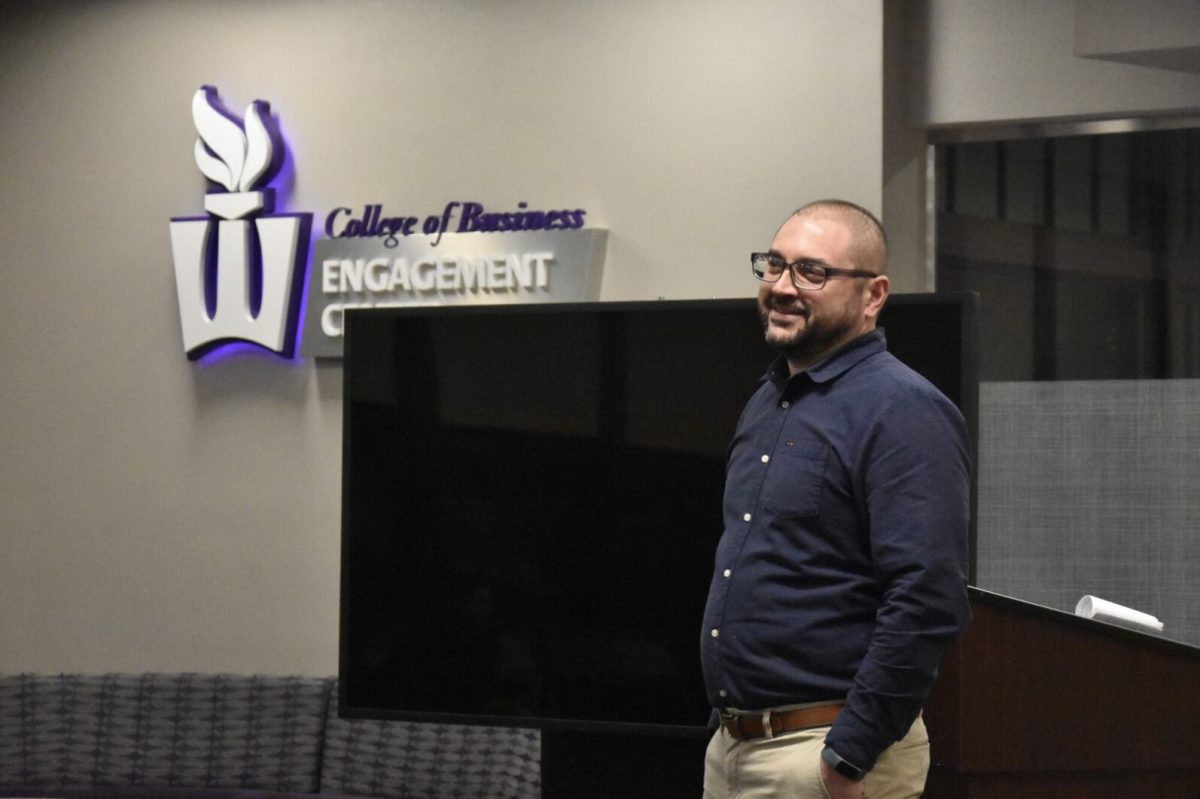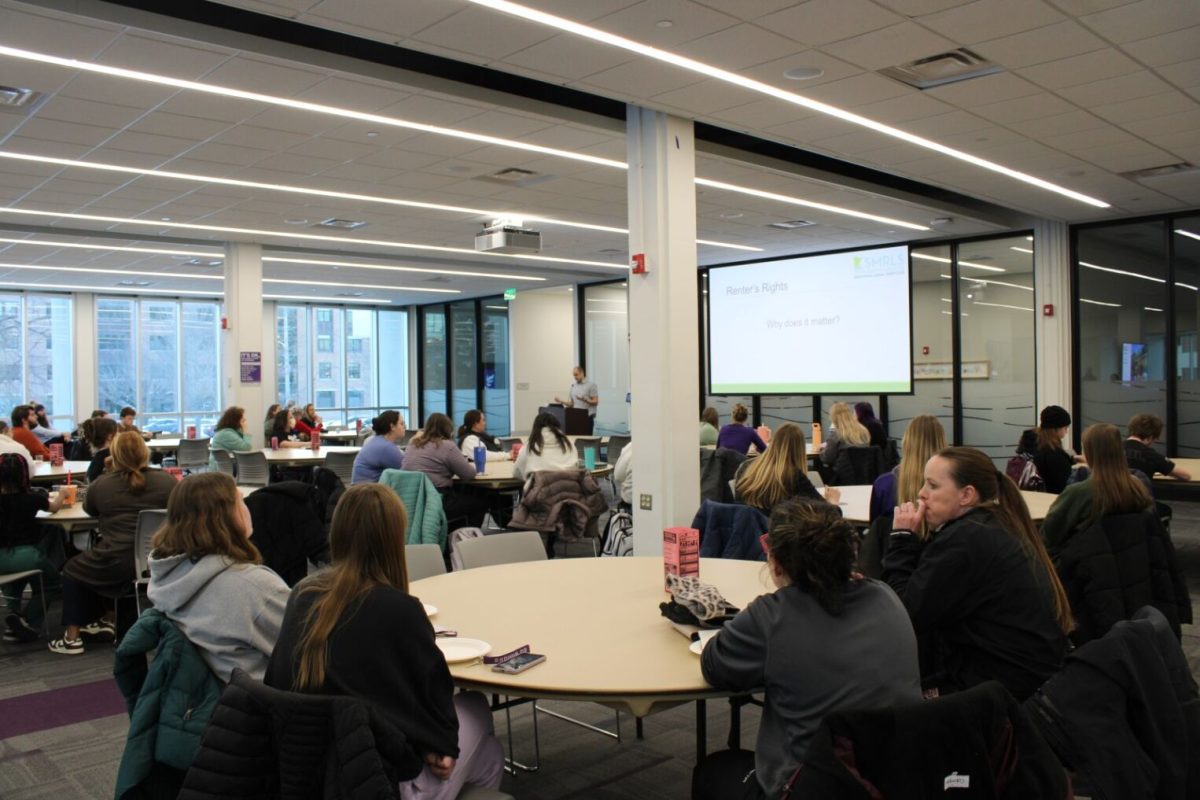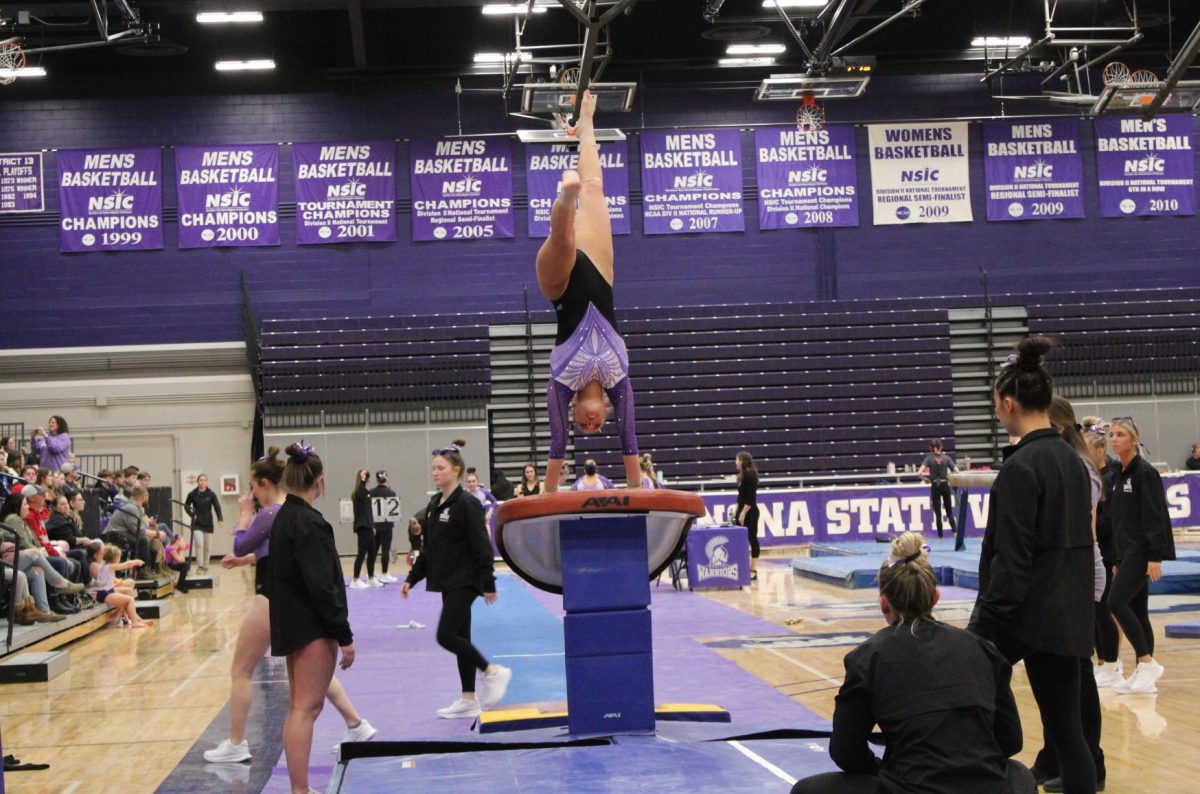Michelle Peterson/Winonan
Wellness Wednesday: Truth About Suicide featured three Winona State University students sharing their struggles with depression, hoping their stories could help fellow students.
“Depression isn’t being sad when your life is hard, it’s being sad when your life is good,” Mick Lynch, a counselor at Winona State, said.
Eli Walgrave, a junior, has a history of being bullied. In high school, Walgrave experienced a chain of bad events that led him to suicidal thoughts. He sought counseling soon after.
“Depression is tricky. It doesn’t go away; it recedes,” Walgrave said.
Walgrave said the start of college was great, but his sophomore year he learned he had anxiety as well as depression. Walgrave started seeing a counselor at Winona State and learned to manage his anxiety.
Walgrave still experienced mood swings that made him depressed and angry, so he continued with counseling. He started taking antidepressants and learned coping skills for depression.
“It made me so that I could help people,” Walgrave said. “If me talking about this makes anyone here go to counseling, I’ll have completed part of my goal.”
Brooke Bartelt, senior, struggled with the transition from high school to college. She attended classes, but spent free time alone in her room. Bartelt’s neighbors reached out to her and encouraged her to see a counselor.
“It changed my life,” Bartelt said.
In counseling, Bartelt discussed why she felt sad and empty. She started taking medication and attending regular counseling sessions. Now Bartelt uses coping skills such as getting involved, making future goals and not isolating herself.
Tim Comes, senior, has suffered from depression since high school. Comes said he kept a lot of anger inside, and when he did express it, it was explosive.
After a three-year relationship ended, depression hit him hard.
“I realized I had two options in my life: it was either kill myself or seek some help,” Comes said.
In his junior year of college, Comes started seeing a counselor and taking medication.
“It’s an everyday struggle, but I’ve also pushed myself to greater things because of it,” Comes said.
The first signs of depression aren’t always clear. People experience a noticeable change in behavior, commonly a lack of interest in things they normally do. A change in biological functions is another indicator of mental illness, such as over or under sleeping and eating.
Lynch said, “Anytime someone contemplates, should I seek help, the answer is yes.”
Eighty percent of college students who commit suicide never seek professional help. In order for everyone to succeed in college, the entire campus needs to be part of the conversation, Lynch said.
“This is everyone’s issue,” Lynch said.
The stigma surrounding mental illness is likely the main reason people do not seek help.
Alex Paulson, co-president of a new club, Active Minds, said, “Students will be more willing to get help if the stigma is erased.”
Active Minds encourages an open conversation about mental illness to decrease the stigma and encourage students to seek help. It is not a support group. It is an action group to get the conversation started.
“Getting help is an empowering move in realizing that you are looking to better yourself,” Paulson said.
In the next few years, Winona State can expect Active Minds and Counseling Services to reach out to students with events that start the conversation about mental illness and hopefully decrease the stigma.
Counseling Services is free and confidential. Counselors will listen and work with students to create a plan for improvement.
Counseling Services also offers free online assessments for depression, anxiety and bipolar disorders.
The Truth About Suicide had the biggest turnout for Wellness Wednesdays so far this year with about 35 people.
Contact Michelle at MPeterson10@winona.edu











































